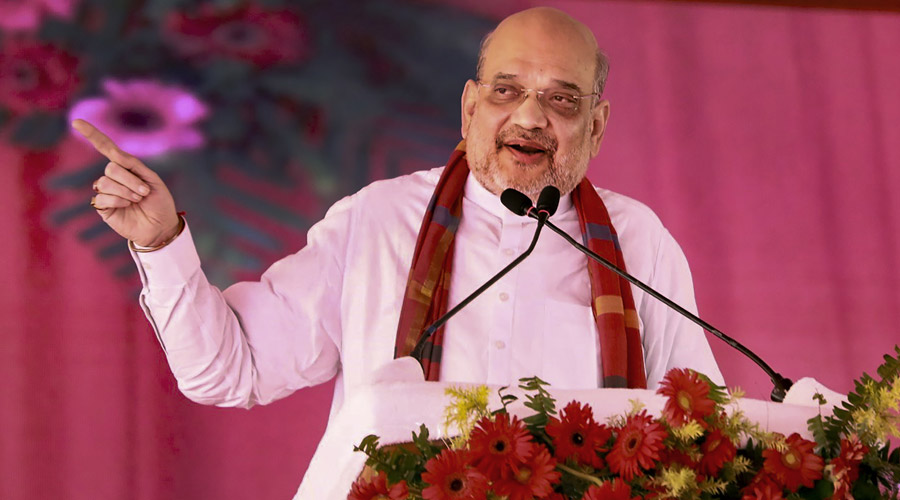Union home minister Amit Shah, the BJP’s chief election manager in Gujarat, has been repeatedly claiming “record victory” in the upcoming Assembly polls but firmly avoiding putting a number to the seats his party could win unlike in the last elections, leading many leaders to read signs of a tough contest.
In 2017, Shah as BJP chief had claimed in the run-up to the polls that the party would win a record 150 out of the 182 seats in Gujarat. The BJP won just 99 seats.
Before the 2021 Bengal polls, Shah had predicted a haul of over 200 seats. The BJP won 77.
Steering the elections for the party this year as home minister of the country, Shah is shying away from pinpointing a number, telling interviewers and rallies instead that “record vijay hogi (it will be a record victory)” and “2022 mein saare record tutenge (In 2022 all the records will be broken)”.
“I will not mention any number but I can tell you that the BJP will win by a record margin. All records will be broken and under the leadership of Prime Minister Narendra Modi the BJP will get an unprecedented victory,” he said in an interview recently.
The usually aggressive Shah fighting shy of being drawn into precise predictions has led many party leaders to sense a “tough election” in Gujarat despite the public show of confidence.
“Only the core leaders are privy to the internal surveys being done by the party. But reading Amitbhai’s statements between the lines, signs of a tough contest can be felt,” a senior BJP leader said.
The leader claimed that all the Union ministers, chief ministers of the party and key leaders from across the country have been asked to campaign in Gujarat.
Party leaders engaged in the management of the Gujarat polls acknowledged that the direction from the top was to unleash a never-seen-before campaign blitzkrieg.
“The scale of the campaign will be such that Modi and the BJP’s message will reverberate in every corner of Gujarat and project an image of invincibility,” a BJP leader said.
This leader said that starting Friday, top leaders have been asked to address small and big meetings in at least three Assembly segments each.











